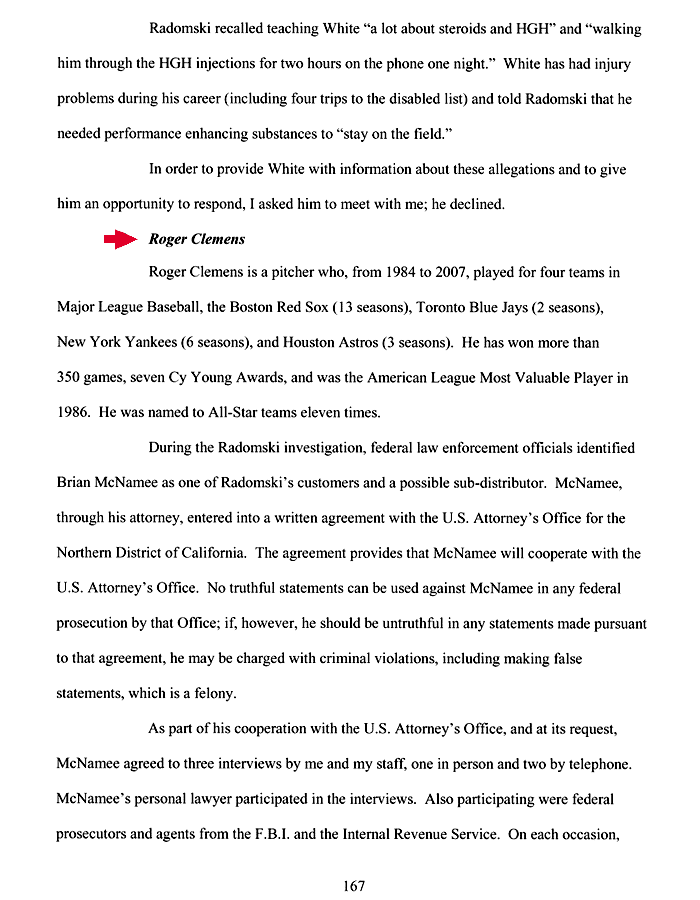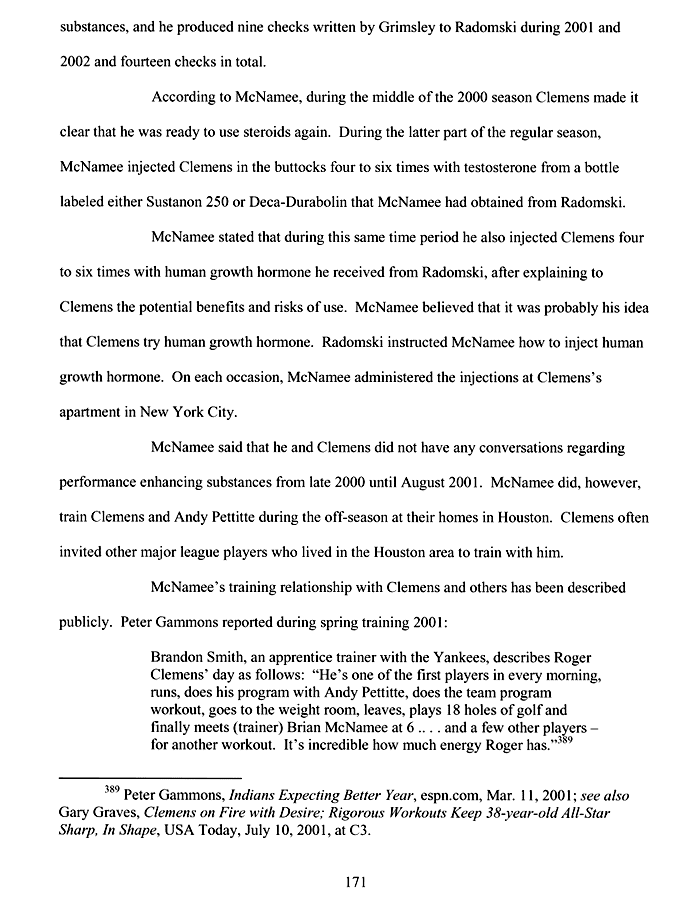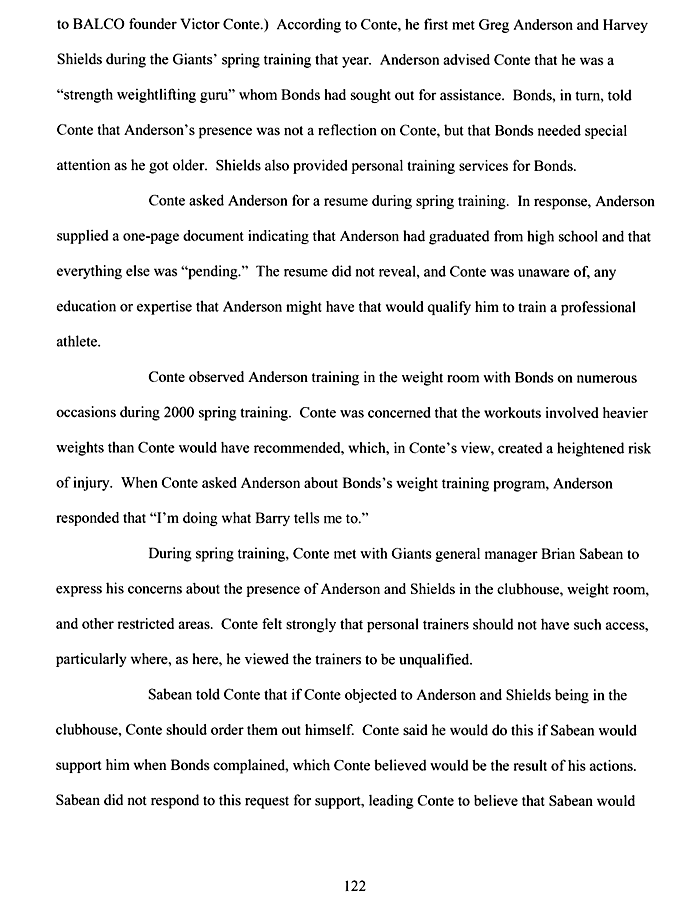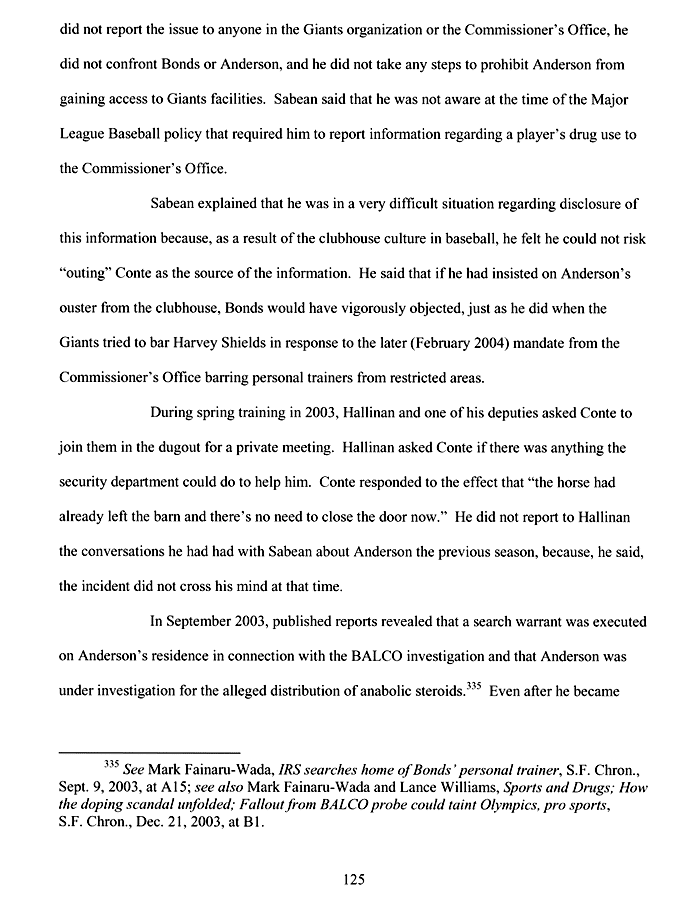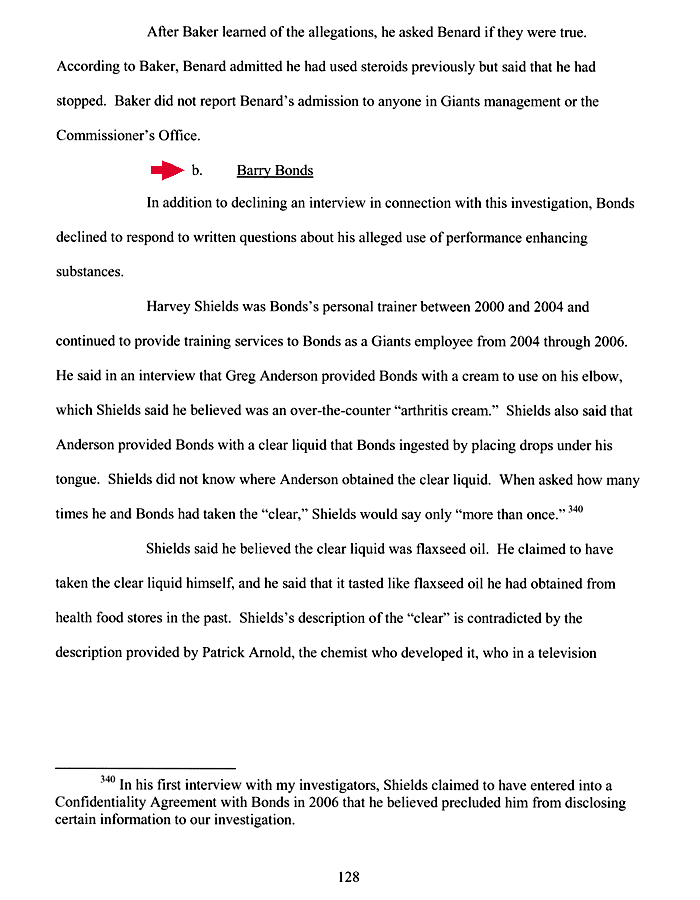Mitchell Report: The Lineup
Bonds, Clemens among dozens fingered in MLB steroid probe

View Document
Mitchell Report: The Lineup
-
Mitchell Report: The Lineup
-
Mitchell Report: The Lineup
-
Mitchell Report: The Lineup
-
Mitchell Report: The Lineup
-
Mitchell Report: The Lineup
-
Mitchell Report: The Lineup
-
Mitchell Report: The Lineup
-
Mitchell Report: The Lineup
-
Mitchell Report: The Lineup
-
Mitchell Report: The Lineup
-
Mitchell Report: The Lineup
-
Mitchell Report: The Lineup
-
Mitchell Report: The Lineup
-
Mitchell Report: The Lineup
-
Mitchell Report: The Lineup
-
Mitchell Report: The Lineup
-
Mitchell Report: The Lineup
-
Mitchell Report: The Lineup
-
Mitchell Report: The Lineup
-
Mitchell Report: The Lineup
DECEMBER 13--Roger Clemens, Barry Bonds, Miguel Tejada, Gary Sheffield, Andy Pettitte, and Paul Lo Duca top the list of baseball stars fingered today as users of performance-enhancing drugs in the bombshell investigative report issued by George Mitchell, who has spent the past 20 months probing the widespread use of steroids and other banned substances in the sport.
Included among the dozens of other current and former ballplayers identified in the Mitchell Report as users of either steroids, human growth hormone, or other banned substances are John Rocker, Lenny Dykstra, Mike Stanton, Denny Neagle, Chuck Knoblauch, Eric Gagne, Mo Vaughn, Benito Santiago, Jason Giambi, Matt Williams, Rondell White, and Kevin Brown.
Click here to download a PDF copy of the entire Mitchell Report.
Deprived of a Serpico-like source among the Major League ranks, Mitchell, a former U.S. Senator and federal prosecutor, relied heavily on information provided by a pair of key sources: Kirk Radomski, a former New York Mets clubhouse attendant, and Brian McNamee, who once worked as a New York Yankees strength coach and personal trainer for Clemens and Pettitte.
Additionally, Mitchell's investigators were provided information gathered by federal and state agents who have probed the notorious Bay Area Laboratory Co-Operative (BALCO), as well as a nationwide steroid distribution ring that has been probed by the Albany, New York district attorney's office.
According to the report, McNamee told Mitchell that he began injecting Clemens with steroids in 1998, when the pitcher was with the Toronto Blue Jays and that the athlete's performance "showed remarkable improvement." In subsequent years, McNamee said, he also injected Clemens with human growth hormone and testosterone at the athlete's New York City apartment.
McNamee also told Mitchell that, at Pettitte's request, he injected the Yankees pitcher with human growth hormone in 2002, when the lefthander was on the disabled list with an elbow injury. Like Clemens, Pettitte declined Mitchell's request to meet with him.
McNamee, 40, is an ex-cop who recently began cooperating with federal investigators after being confronted with evidence that he received steroids from Radomski and was apparently acting as a "sub-distributor." The report notes that he has been "debriefed extensively by federal prosecutors and agents," who confirmed that McNamee's statements to Mitchell were consistent with those information previously provided to government investigators.
While working for the Yankees in October 2001, McNamee was questioned by Florida cops in connection with the alleged sexual assault of woman in a St. Petersburg hotel pool. The woman claimed the attack came after she unknowingly ingested GHB, the so-called date rape drug. Prosecutors later declined to press charges against McNamee, who cops said was found naked in the pool "thrusting himself" into the groggy woman.
The report notes that San Francisco Giants trainer Stan Conte told Mitchell of an incident in August 2002 when a player approached him and said he was considering obtaining steroids from Greg Anderson, Bonds's personal trainer. Conte said he lectured the athlete about the health dangers of steroids and then reported the incident to Brian Sabean, the team's general manager. Conte said that he told Sabean that, "he was concerned that Anderson might be distributing steroids to Giants players."
Sabean told Mitchell that he did not confront Bonds or Anderson, or report the matter to the Commissioner's Office. Instead, he asked Conte to "check out" Anderson's background. Sabean acknowledged that if he had insisted on Anderson's ouster from the team's clubhouse, "Bonds would have vigorously objected." It was not until Anderson was subsequently implicated in the BALCO probe in late-2003 that the Bonds crony was barred from Giants facilities.
Another Bonds personal trainer, Harvey Shields, told Mitchell that Anderson provided Bonds with a "cream to use on his elbow" and a clear liquid that the athlete ingested by placing drops under his tongue. Shields, who said that he believed the substances were an "arthritis cream" and flaxseed oil, added that he had entered into a 2006 confidentiality agreement with Bonds that, a footnote reports, "precluded him from disclosing certain information to our investigation." Investigators believe that Bonds used BALCO designer steroids nicknamed "the cream" and "the clear."
Giants owner Peter Magowan told Mitchell that he asked Bonds about steroid usage during a February 2004 telephone conversation. Bonds replied that, "when he took the substances he did not know they were steroids but he later learned they were." Bonds, Magowan recalled, said he only used the substances for a short period of time and that they "didn't work."
Two days after Magowan's interview with Mitchell, the team owner's lawyers called to say their client "misspoke" when saying that Bonds had "later learned the substances he had taken were steroids." The home run king, of course, was indicted last month on perjury and obstruction charges for allegedly lying during a December 2003 appearance before a federal grand jury. During that session, Bonds repeatedly denied taking steroids or obtaining performance-enhancing drugs from Anderson.
The 311-page report, which was released this afternoon minutes before a news conference by Mitchell, is supplemented by 32 pages of exhibits, including canceled checks, Express Mail receipts, and handwritten notes. The document is highly critical of baseball officials--from the commissioner's office down--and players union leaders for doing little to stem the rampant use of performance-enhancing substances during a period in which suspiciously bulked-up sluggers have toppled home run records and aging pitchers have magically regained their youthful form (and fastball speeds). (20 pages)




